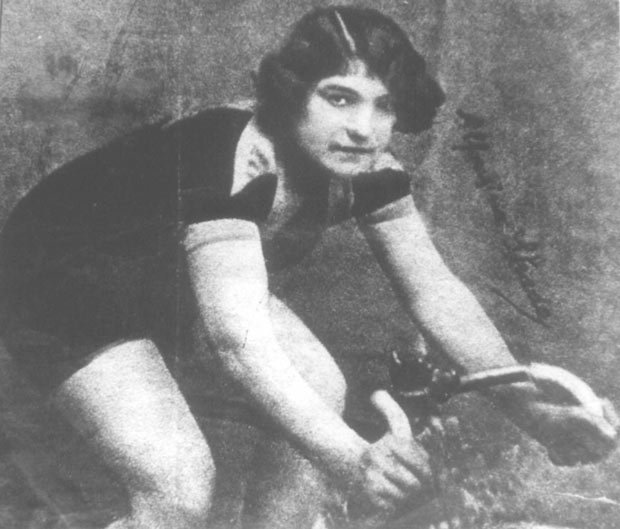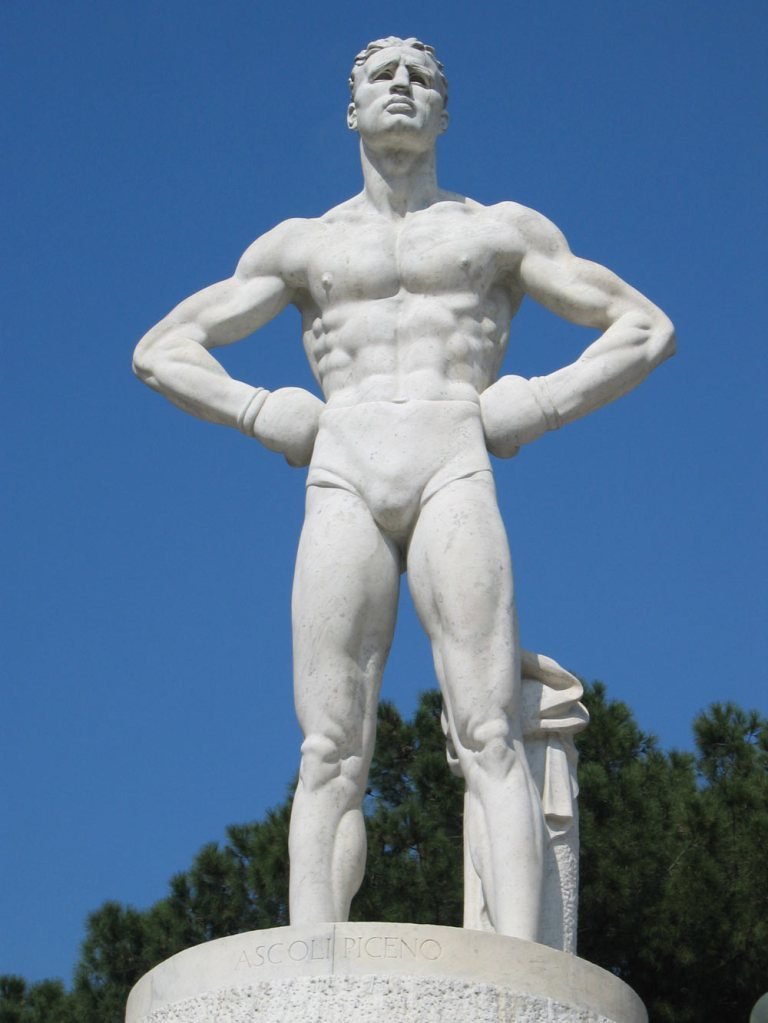Alfonsina Strada achieved national hero status as the first woman to participate in the Giro d’Italia.

Fascist Dilemma: Balancing The Ideal Woman With The Modern Athlete
In 1932, a women’s academy was established in Orvieto, providing training in housework, health, hygiene, home economics, and social discipline. After graduation, the students were sent to various schools across the country. While the curriculum emphasized preparation for motherhood, it also included sports and physical exercise.
Fascism faced a challenging dilemma, torn between encouraging women to focus on childbirth and apprehensions about potential international embarrassment in sports. This predicament underscored the regime’s struggle to reconcile the idealized woman with the emerging image of the modern female athlete.
Believing that a large population equated to domestic and international influence, Mussolini advocated for population growth. Incentives such as financial assistance and tax reductions were provided to encourage early marriage and the fathering of multiple children, while bachelors faced additional taxes.
In Fascist ideology, women were portrayed as heroic figures, and their national significance was emphasized. They received medals of honor and progressively larger cash prizes for each child after the fifth one, up to the twentieth. Notably, the idealized women under Fascism were plump, hailing from rural areas, and exceptionally fertile.
Also Read: Hollywood Walk of Shame
The Fascist Regime’s Paradoxical Stance On Female Sports
Contrary to expectations, the Fascist regime initially embraced a relatively lenient attitude toward women’s participation in sports. However, as sports were perceived solely as an expression of male strength and virility, female athletes competing at the international level did not receive any financial support. Despite this discrimination, complete exclusion proved impossible.
Pavia’s young gymnasts achieved an impressive silver medal at the 1928 Antwerp Olympic Games, following the noteworthy example set by Alfonsina Strada in 1924 when she completed the Giro d’Italia. Strada, who had been participating in road races and time trials since 1910, faced suspicion, misunderstanding, and insults.
As a woman on a bicycle, clad in shorts, she became a conspicuous figure, evoking attention and reactions. The 1923 Almanac for Italian Women emphasizes the importance of sports in preserving, improving, and perfecting the body while avoiding dangerous excesses and ridiculous exaggerations.
Cycling Amidst The Turmoil Of World War I
During the First World War, cycling stood out as one of the few sports that continued, with the 1917 Tour of Lombardy even taking place a few days after the disastrous defeat at Caporetto. Described by La Gazzetta as a “show of the country’s calm and serenity,” the notable presence of amateurs in what was traditionally a professional race served as an indicator of Italy’s wartime challenges.
Recognizing the potential for extra publicity, race director Armando Cougnet accommodated Alfonsina Strada’s request to participate. Strada completed the 204-kilometer tour, finishing one-and-a-half hours after the Belgian winner, Philippe Thys.

Alfonsina Strada Breakthrough in the Giro d’Italia
Despite participating in the race again in 1918, merely a week after the war’s end when the number of entrants was minimal, Alfonsina Strada’s significant breakthrough occurred in 1924 when she became the first woman to complete the Giro d’Italia. “Her inclusion was essential for the success of the project. Commercial interests demanded her involvement.”
Armando Cougnet and La Gazzetta’s editor Emilio Colombo seized the opportunity to exploit Strada’s appeal after a dispute between several bicycle manufacturers and the newspaper led to their withdrawal from the race.
Whether an inadvertent error or a deliberate attempt to generate more attention, the unknown amateur Alfonsin Strada from Milan, went relatively unnoticed. The absence of the final ‘a’ in her name helped maintain a level of ambiguity about her gender, preventing the Bolognese newspaper Il Resto del Carlino from categorizing her as the male competitor Alfonsino.
Starting May 10, 1924, Silvio Zambaldi Observed A Dynamic Woman In The Pack
Sporting a cropped baby haircut and extremely brief shorts, her jumper’s hems daringly exposed, she cycled with confidence and joy, reminiscent of a truant schoolboy. Spectators along the streets, especially women, quickly took notice, expressing amazement, perhaps even a hint of scandal, at her unconventional gender representation.
The race concluded nearly three weeks later, on June 1, covering a challenging 3,613 km across 12 stages on rough roads. La Gazzetta’s coverage of the foreign competitor, Alfonsina, gained momentum: “In only two stages, this little lady’s popularity has become greater than all the missing champions put together.”
Observers, intrigued and sometimes critical, eagerly anticipated her belated arrivals to both applaud and insult her bare legs, typically prohibited by several prefectural orders but permitted in the name of sport.
As the riders ventured deeper into southern Italy, they faced roads filled with potholes and rocks and encountered an increasingly captivated public enamored by Strada. At the Rome–Naples stage departure, Alfonsina drew the usual commotion, arriving at the checkpoint in a new, vibrant outfit. Her fame rose, with Romans honoring her with flowers, a new jersey, and even earrings. Despite the challenges of the grueling fourth stage, including heat, dust, and treacherous roads, Alfonsina’s radiant presence continued to make an impact.
Strada’s Grueling Triumph: Overcoming Odds In The Giro d’Italia
Considering retirement due to physical strain after completing the Foggia–L’Aquila mountain stage in 15 hours on May 22, Strada received a surprise visit from Colombo, who presented her with a significant sum of 500 lire, seemingly contributed by her fans. Regulations changed to avoid disqualification for exceeding the time limit on a single stage.
Recognizing her value, Colombo personally covered Strada’s hotel expenses and arranged for a masseur. Out of the initial 90 riders, only 30 officially finished, along with three, including Strada, who exceeded the maximum time limit, arriving 28 hours behind the winner. This unprecedented feat for a woman earned Strada cups, medals, and donations, estimated to total up to 50,000 lire, along with a shift in the press’s previously hostile attitude.
Strada, following a suggested meeting with Mussolini and an official message from King Victor Emmanuel III, received acclaim from both the Italian public and foreign journalists. Despite the recognition, her efforts resulted in only modest earnings and fleeting fame. Considering herself a ‘professional’ cyclist, Strada mistakenly assumed that her triumphs would guarantee her participation in other races.
In 1925, the dispute between bicycle manufacturers and La Gazzetta dello Sport was resolved, reducing the need for publicity stunts. However, Colombo personally denied Strada’s entry, contradicting the paper’s enthusiastic support from the previous year:
Alfonsina isn’t competing to defeat anyone; her aim is to illustrate that even the supposedly weaker gender can achieve what the stronger gender can. Could she possibly serve as a pioneer for feminism, showcasing its formidable ability to advocate for the right to vote in both local and national elections?
Also Read: It Was a Dark and Stormy Night


